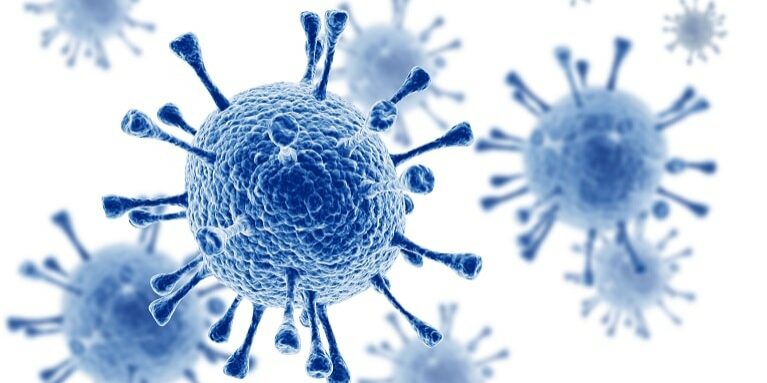The journey toward conception is a deeply personal one, filled with hope, anticipation, and often, a touch of uncertainty. For many, the path can feel like a mystery—sometimes quick and effortless, other times long and challenging. What many do not realize is that fertility is not just about timing, hormones, or medical factors; it is also profoundly influenced by nutrition. What we eat shapes the very foundation of reproductive health.
Food is more than calories and taste—it is information. Every bite delivers messages to our cells, influencing hormones, energy balance, and even the quality of eggs and sperm. For women, especially, nutrition plays a central role in regulating ovulation, supporting the uterine environment, and preparing the body for pregnancy. Fertility nutrition is not about restrictive diets or quick fixes; it is about nourishing the body so it can function at its best when the miracle of life is on the horizon.
Understanding Fertility at a Biological Level
Before diving into specific foods, it helps to understand the biology of fertility. A woman’s reproductive system is a finely tuned symphony, orchestrated by hormones such as estrogen, progesterone, follicle-stimulating hormone (FSH), and luteinizing hormone (LH). Ovulation—the release of a mature egg from the ovary—depends on a delicate balance of these signals.
Nutrition interacts with these processes in several ways. Macronutrients such as proteins, fats, and carbohydrates influence insulin sensitivity, which in turn affects ovulation. Micronutrients like iron, folate, zinc, and vitamin D play critical roles in egg development, DNA integrity, and implantation. Even subtle nutrient imbalances can disrupt cycles, making conception more difficult.
Equally important is the fact that fertility is not just about producing eggs—it is about producing healthy eggs, maintaining a receptive uterus, and ensuring balanced hormone production. Nutrition provides the building blocks for all of these.
The Role of Healthy Fats in Hormone Balance
Fats have long been misunderstood, often painted as villains in the story of health. Yet when it comes to fertility, healthy fats are essential. Hormones, including estrogen and progesterone, are synthesized from cholesterol and fatty acids. Without adequate healthy fats, the hormonal foundation of reproduction weakens.
Omega-3 fatty acids, found in fatty fish such as salmon, sardines, and mackerel, are especially important. They reduce inflammation, improve blood flow to reproductive organs, and help regulate ovulation. Plant sources like chia seeds, flaxseeds, and walnuts provide alpha-linolenic acid (ALA), which the body can partially convert into the active forms EPA and DHA.
On the other hand, trans fats—the kind found in processed and fried foods—interfere with insulin sensitivity and disrupt ovulatory function. Research from Harvard’s Nurses’ Health Study showed that women who consumed more trans fats had a higher risk of ovulatory infertility. This highlights the importance of not just eating enough fat, but choosing the right kinds.
Protein and Fertility: Animal and Plant Sources
Proteins are the building blocks of life, and in fertility nutrition, they are no less critical. They provide amino acids that support hormone production, egg quality, and uterine health.
Animal-based proteins, such as lean poultry, eggs, and fish, deliver high-quality amino acids along with nutrients like vitamin B12, heme iron, and zinc, all crucial for reproductive health. However, research suggests that balancing animal proteins with plant-based proteins may offer added benefits for fertility. Beans, lentils, quinoa, nuts, and seeds provide fiber, phytonutrients, and plant-derived proteins that support insulin regulation and reduce inflammation.
Interestingly, studies have shown that women who replaced some animal proteins with plant-based proteins experienced improved ovulation rates. This does not mean cutting out animal foods entirely but rather embracing variety and balance.
Carbohydrates and Insulin Sensitivity
Carbohydrates often get a bad reputation, but the type and quality of carbohydrates matter more than the quantity. Refined carbs—white bread, pastries, sugary drinks—spike blood sugar levels, leading to insulin resistance. Insulin resistance, in turn, disrupts ovulation and is a key feature of polycystic ovary syndrome (PCOS), one of the most common causes of infertility.
In contrast, complex carbohydrates—whole grains, vegetables, fruits, and legumes—are digested slowly, leading to steady blood sugar levels. They provide fiber, antioxidants, and vitamins that support overall health and reproductive function. Choosing whole-food carbohydrates supports hormone balance and ensures steady energy availability for the demanding processes of ovulation and early pregnancy.
Micronutrients: Small but Mighty Players
While macronutrients provide energy and structural support, micronutrients act as catalysts and protectors in reproductive health.
Iron is critical for ovulation and the prevention of anemia, which can hinder pregnancy. Women who consume adequate iron, particularly from plant sources like lentils and spinach, have lower rates of ovulatory infertility. Pairing plant-based iron with vitamin C-rich foods improves absorption.
Folate is perhaps the most famous fertility nutrient, known for preventing neural tube defects in developing babies. But its role begins before conception. Folate supports DNA synthesis, egg quality, and implantation. Leafy greens, beans, citrus fruits, and fortified grains are excellent sources.
Vitamin D influences reproductive hormones and is linked to ovarian reserve. Deficiency is common, especially in regions with limited sun exposure, making supplementation or fortified foods often necessary.
Zinc is essential for egg development, fertilization, and early embryonic growth. Oysters, pumpkin seeds, and beans are rich in zinc.
B vitamins, including B6 and B12, help regulate homocysteine levels, support hormone balance, and assist in energy metabolism, all of which affect fertility outcomes.
Each of these micronutrients plays a small but vital role, and deficiencies can create hidden barriers to conception.
Antioxidants and Egg Quality
One of the most profound yet underappreciated factors in fertility is oxidative stress. Free radicals—unstable molecules produced by metabolism, pollution, or stress—can damage cells, including delicate egg and sperm cells. Antioxidants neutralize free radicals, protecting reproductive health.
Vitamins C and E, selenium, and phytonutrients like carotenoids and flavonoids act as powerful antioxidants. Berries, pomegranates, spinach, tomatoes, and green tea are rich in these compounds. Antioxidant-rich foods help preserve egg quality, particularly as women age, when oxidative stress tends to accumulate.
The Gut-Fertility Connection
Emerging science has revealed that the gut microbiome—the vast community of microbes living in our digestive tract—has a surprising influence on fertility. The gut helps regulate metabolism, immunity, and even hormone balance. Dysbiosis, or imbalance in gut bacteria, can contribute to inflammation, insulin resistance, and reproductive hormone disruption.
Fermented foods such as yogurt, kefir, sauerkraut, kimchi, and miso introduce beneficial bacteria, while prebiotic foods like garlic, onions, asparagus, and bananas feed those microbes. Supporting gut health creates a ripple effect that benefits the reproductive system.
Hydration and Reproductive Health
While nutrition often emphasizes food, water deserves equal attention. Adequate hydration supports cervical mucus production, which is essential for sperm transport. It also aids in blood circulation, hormone distribution, and nutrient absorption. Even mild dehydration can impact energy, metabolism, and fertility outcomes. Drinking enough water throughout the day, and limiting dehydrating beverages like excess caffeine and alcohol, helps maintain reproductive health.
The Role of Lifestyle in Fertility Nutrition
Nutrition does not exist in isolation. Sleep, stress, physical activity, and environmental exposures all interact with diet to influence fertility. Chronic stress, for example, raises cortisol, which can disrupt ovulation and hormone regulation. Pairing nutrient-rich foods with stress-reducing practices—yoga, meditation, gentle exercise—enhances fertility outcomes.
Excessive alcohol and smoking directly harm reproductive health, while moderate exercise improves insulin sensitivity and blood flow. Nutrition lays the groundwork, but lifestyle choices strengthen and sustain the foundation.
Special Considerations: PCOS, Endometriosis, and Fertility Challenges
For women facing fertility challenges such as polycystic ovary syndrome (PCOS) or endometriosis, nutrition can play a therapeutic role.
In PCOS, diets that lower insulin resistance—rich in whole grains, lean proteins, and healthy fats—help restore ovulation. Omega-3s, in particular, reduce inflammation and improve egg quality.
In endometriosis, anti-inflammatory foods like leafy greens, berries, olive oil, and fish may alleviate symptoms and improve fertility. Limiting processed foods and excess red meat helps reduce inflammation and hormonal imbalances.
Nutrition cannot cure these conditions alone, but it can dramatically improve reproductive outcomes when combined with medical care.
Cultural Perspectives on Fertility Foods
Across cultures, traditional wisdom has long linked food with fertility. In Mediterranean cultures, olive oil, fish, and fresh vegetables dominate—the very foundation of the fertility-promoting Mediterranean diet. In Asian traditions, foods like sesame seeds, ginger, and ginseng are believed to nourish reproductive energy. These cultural practices often reflect centuries of observation and align remarkably well with modern nutritional science.
A Fertility-Friendly Pattern of Eating
While no single food guarantees conception, dietary patterns consistently make a difference. The Mediterranean diet, for example, has been strongly associated with improved fertility outcomes. It emphasizes whole grains, vegetables, fruits, legumes, nuts, olive oil, and fish—nutrient-dense, anti-inflammatory foods that support ovulation and reproductive health.
Equally important is moderation: balancing macronutrients, limiting processed foods, and embracing variety. Fertility nutrition is less about perfection and more about creating an environment where the body feels nourished, balanced, and ready for pregnancy.
The Emotional Side of Fertility and Food
Trying to conceive can be emotionally taxing, and food often becomes a source of stress. Questions like Am I eating the right foods? Am I harming my chances? can weigh heavily. It is important to approach fertility nutrition not as a rigid set of rules but as an act of self-care.
Every meal is an opportunity to nourish both body and spirit. Sharing meals with loved ones, savoring seasonal produce, and honoring cultural traditions can transform fertility nutrition from a burden into a celebration of life.
The Future of Fertility Nutrition
Science continues to uncover new insights into the relationship between diet and fertility. Research into nutrigenomics—the study of how genes and nutrients interact—may one day personalize fertility diets based on an individual’s genetic makeup. Advances in microbiome research will likely lead to targeted probiotics for reproductive health.
These developments hold promise, but the fundamental truth remains: fertility thrives on nourishment, balance, and connection to nature’s abundance.
Conclusion: Nourishing Life Before It Begins
Fertility is more than the ability to conceive; it is a reflection of overall health and vitality. The foods we choose have the power to shape hormones, protect eggs, support ovulation, and prepare the body for the incredible journey of pregnancy. Fertility nutrition is not a diet to endure but a pathway to embracing life at its fullest potential.
Every bite of leafy greens, every sip of clean water, every handful of nuts is an offering to the future—a way of saying yes to life before it even begins. By nourishing ourselves with intention and care, we do more than support fertility; we honor the miracle of creation that begins with something as simple, and as profound, as food.






